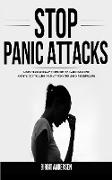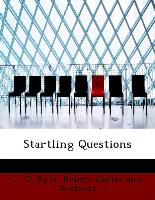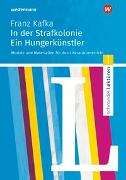- Start
- STOP PANIC ATTACKS
STOP PANIC ATTACKS
Angebote / Angebote:
Have you ever felt a sudden surge of intense fear and anxiety? Explore this panic attack guide including symptoms, treatment, and tips on self-help.Young woman, hands to mouth, eyes anxiously looking outward, completed in the midst of a crowd surrounded by others.What is Panic Attack?A panic attack is an extreme wave of fear that is characterized by its unexpectedness and weakening, immobilizing force. You're beating your heart, you can't breathe and you might feel like you're dying or going crazy. Often panic attacks hit out of the blue, without warning, and sometimes without specific cause. They can even happen when you're either comfortable or asleep.A panic attack may be a one-time occurrence, while recurring episodes are encountered by many. Recurrent panic attacks are often triggered by a particular situation, such as crossing a bridge or speaking in public - especially when that situation has previously induced a panic attack. The panic-inducing condition is usually one where you feel trapped and unable to flee, causing a fight-or-flight response from the body.You can suffer one or more panic attacks but be perfectly happy and healthy otherwise. Or you may experience panic attacks as part of another condition, such as panic disorder, social phobia, if depression. Panic attacks are treatable, no matter what the cause. There are strategies you can use to reduce or eliminate the panic symptoms, regain your trust and take back control of your life.Signs and symptoms of panic attacks The signs and symptoms of a panic attack develop abruptly and usually peak within 10 minutes. These rarely last longer than an hour, with most finishing in between 20 and 30 minutes. Panic attacks can occur anytime, at any time. You may have one while shopping at a store, walking down the street, driving in your car, or even sitting at home on the couch.Symptoms of a panic attack include:1. Breath shortening or hyperventilation: Hyperventilation is a condition where you start breathing very quickly.A balanced respiration happens with a good balance between oxygen breathing and carbon dioxide breathing out. You upset that balance by exhaling more than you inhale when you hyperventilate. This causes a rapid reduction in carbon dioxide in the body.Low carbon dioxide levels lead to narrowing of the blood vessels that supply blood to the brain. This reduction in blood supply to the brain leads to symptoms like lightheadedness and tingling in the fingers. Severe hyperventilation can lead to loss of consciousness.2. Heart palpitations or heart racing: Palpitations make you feel as though your heart is beating too hard or too quickly, missing a beat or fluttering. You may experience palpitations of the heart in your arms, throat or neck.They can be humiliating or terrifying. Typically, though, they aren't extreme or dangerous and often go away alone. You are mostly due to stress and anxiety, or because you have had too much caffeine, nicotine, or alcohol. They can occur when you are pregnant, too. In rare cases palpitations can be a symptom of a heart condition that is more severe. So see your doctor, if you have heart palpitations.Trembling or shaking: This is usually a tremor of the hands as hands shake or shake. Tremors are usually caused by conditions that regulate movements in areas of the brain. Neurological problems may cause tremors but they may also be caused by metabolic problems and contaminants (such as alcohol), influencing the brain and nervous system. Shaking hands and shaking can also be a side effect of various medications.
Folgt in ca. 15 Arbeitstagen




